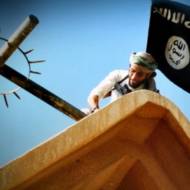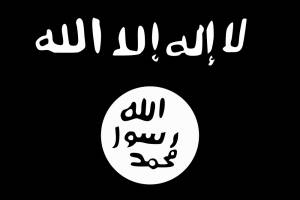
The indigenous Christian population in the Middle East has been largely decimated by Islamic forces sweeping through the region, leaving them in a precarious situation as Israel has become the only safe country for Christians in the Middle East.
As operations to retake the the city of Mosul ramp up, Iraqi Christians displaced from the area by the Islamic State (ISIS) group say that even if the terrorists are defeated militarily, the country will not be safe for minorities.
Qaraqosh, the biggest Christian town on the Nineveh plains in Iraq’s north, fell to ISIS more than two years ago and remains under ISIS control. Most of its displaced inhabitants are living in camps in Iraq’s Kurdish region. Hundreds of others fled to neighboring countries, Europe, the United States and further afield.
On the edge of Irbil’s historically Christian neighborhood of Ankawa, 1,200 identical white trailers arranged in neat rows shelter some 5,000 people. A handful of families here say they will return home the day their town is liberated. But many say they would rather leave for abroad. Despite the string of military defeats suffered by ISIS, they say their incursion into Iraq has thrown the future of the country’s minority groups into further uncertainty.
“If organized migration were possible, then I can say that 90 percent of the inhabitants of this camp would leave,” said camp manager Father Emanuel Adel Kelo.
Stuck in Limbo
Raad Bahnam Samaan, his wife and five children fled their home in Qaraqosh in early August 2014, joining the 150,000 Iraqi Christians who left towns and villages around Mosul for areas under Kurdish control. In the face of the ISIS advance, Kurdish forces — known as the Peshmerga — largely withdrew from the outskirts of Mosul, and the towns and villages fell rapidly into ISIS’ hands.
After months of living in cramped quarters in a dusty camp for displaced civilians, Samaan and his family tried to leave the country through a United Nations resettlement program but without success.
Samaan says the more than two years of being stuck in limbo has dulled his sense of optimism.
“There is always hope,” he said of returning home, “but when? Nobody knows. It might be a year, two years, a day, a couple of days. Three or four years from now if we go home there won’t be anything left of our house.”
Christians once constituted a sizeable minority in Iraq but their numbers have dwindled since the 2003 US-led invasion as many have emigrated to the West to escape violence.
“I see no future for us (here),” Samaan said.
His son, Iva, 25, is engaged to be married but the camp is at capacity and he can’t secure a private trailer to share with his wife to be.
“The boys are growing up,” Samaan said, “how can I secure their future?”
When Samaan reflects on what life may be like in a liberated Mosul, he says he worries the upheaval caused by ISIS will have strained sectarian tensions in Iraq beyond repair, making enemies of people who were once his neighbors.
“We’ll still be afraid. I will go to Mosul and I will be afraid because they will say, here comes the Christian,” he said.
By: AP
Sign the Petition to Unite Against Islamic Terror
Petition to the United States and World Powers:
We urge our leaders to reject all supporters of Islamic Terror. Do NOT join forces with Iran, Hamas and other extremists to fight ISIS. Unite with Your Friends – Not with Your Enemies.
Source: United with Israel


